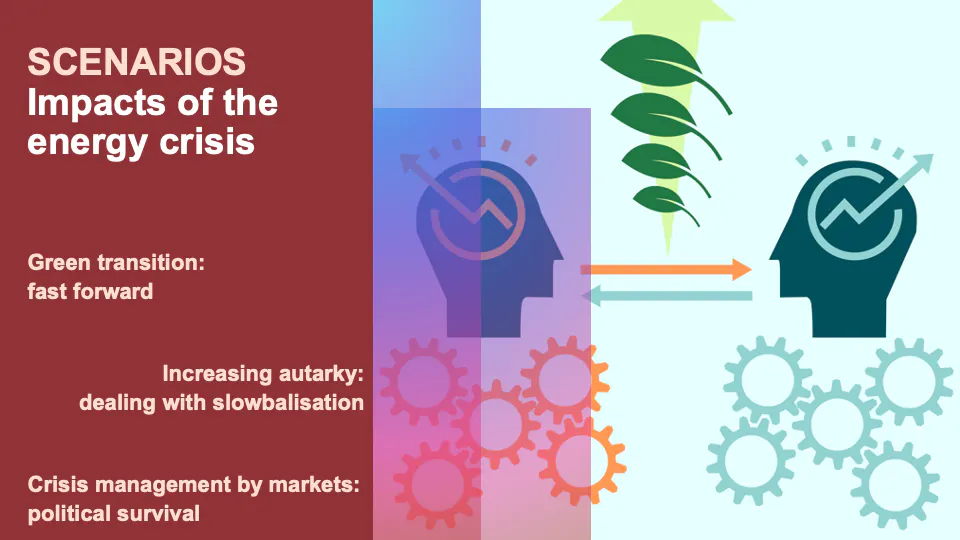Scenario thoughts
Impacts of the energy crisis
September 2022

Rising energy prices and the emerging energy crises will also affect territorial and societal disparities in Europe. In a recent study for the European Committee of the regions (Opens in a new window), we have briefly sketched three scenarios:
What may happen if the EU decides to become more or less closed respectively open in the context of growing de-globalisation and protectionism and if pragmatic decision making or the idea of using the current crisis as a change to accelerate the green transition prevail?
Discussing possible scenarios along those lines make one thing clear: Our choices and the underlying ideas or visions that drive them matter to Europe’s development prospects. In rough terms, there is the risk that energy crises further increases Europe’s fragmentation and drives the EU, its places and people further apart, as decisions are taken on a “day to day basis” without a shared underlying overall vision. A quick summary of the three scenario sketches illustrates this (the full scenario texts can be found in the study report).
Scenario 1:
Green transition – fast forward
Facing energy crises and climate change, measures to accelerate a green transition are taken at EU level and in the member states. Substantial efforts are made to exploit energy saving potential in industry, households and transport also through behavioural changes. At the same time production of renewable energy and phasing out non-renewable energy sources is fast-tracked. This fast forward transition does not come without challenges. Rising energy costs and thus higher costs of living risk to lead to increasing social inequalities and unrest, as happened some years ago with the Yellow Vests (gilets jaunes) protests. Therefore substantial government support to households is provided. There are also various support measures to the energy supply and the production sector in general as they face considerable various hiccups during the course of the transition. The strong government support ensures a broad acceptance to approach the transitions necessary to deal with climate change and follow up on the UN sustainable development goals (SDGs). In that sense, the energy crises becomes a catalyst to increase societal awareness about the grand societal challenges of our time and helps changing mindsets and behaviours and served as accelerator for a green transition. As it turns out, more sustainable and decentralised solutions are also more secure and resilient in the light of external shocks.
To read this post you'll need to become a member. Members help us fund our work to ensure we can stick around long-term.
See our plans (Opens in a new window)
Already a member? Log in (Opens in a new window)


